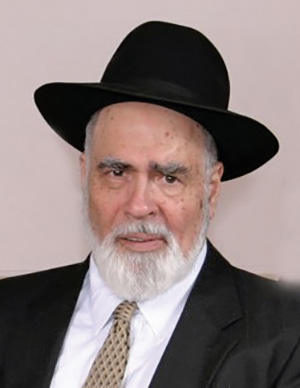
Was the First Day Miraculous?
The Beit Yosef asks: Why is Chanukah celebrated for eight days and not seven? There was enough oil to last for one full day. The miracle is really that it burned for another seven days. The holiday should therefore begin on the 26th day of Kislev, not the 25th.
Many answers have been offered. The Beit Yosef himself answers that on the first day, the entire cruse of oil was lit but only one eighth of it was consumed. Each consecutive day, an additional eighth of the oil was consumed. So every day was a miracle.
Rav Aaron Soloveitchik, zt”l says the following compelling explanation: The first day of Chanukah was not only one miracle, but actually a three-fold miracle!
First, the Greeks’ intent was not to destroy the Beit Hamikdash but to desecrate it with idol worship. It was a tremendous miracle that a single cruse of oil escaped their efforts to defile everything in the Holy Temple.
Second, one would think that the Jews could have inevitably given up in despair after seeing all the damage that was done to the Beit Hamikdash. Everything had been plundered and violated. Yet they had the incredible trust in Hashem, tenacity and willpower to search for pure oil.
Finally, the third miracle was that, b’chasdei Hashem, the Maccabees actually found the untouched cruse of oil, which they proceeded to light on that first night of the first Chanukah.
The Two Chanukahs
As there are no coincidences in the Torah, the beginning of one parsha must have some kind of connection to the end of the previous parsha.
Parshat Behaalotecha opens with Aharon Hakohen fulfilling the mitzvah of lighting the menorah. The previous parsha, Naso, concludes with the chanukat haMishkan, the great dedication of the sanctuary in which the entire tribe of Levi had no part. What is the connection?
Rashi cites a midrash that says that when Aharon HaKohen saw that neither he, his family nor his entire tribe were included in the dedication, he became very depressed. Hashem comforted him with the response, “I swear by your very life that your reward is greater than that of the heads of the tribes. You are going to light the menorah.”
The Ramban asks: How is this a “consolation prize”? How does the fact that the kohanim will light the menorah compensate for their being exempted from the glorious milestone in which every other tribe participated?
His answer is that Hashem was alluding to a future Chanukah. It will be when Aaron’s descendants, Yehuda HaMaccabi and his brothers, searching in the desecrated Beit Hamikdash, would find a small, untouched cruse of oil that would last for eight days.
Hashem was offering him solace in saying “Aaron, there will be another dedication later in Jewish history. It will be the Chanukah of the menorah’s rededication performed by your righteous descendants, the Chashmonaim.”
Rav Yosef Ber Soloveitchik asks: How is it possible that the Chanukah of the Chashmonaim is greater than that of Aharon Hakohen himself lighting the menorah in the original Mishkan? Isn’t that much more significant?
He answers that without a Mishkan, the dedication of the menorah would become just an event in history. The later Chanukah, however, is not dependent upon the presence of the Mishkan or the Beit Hamikdash. These actions of the Chashmonaim, the descendants of Aaron HaKohen, will be remembered and celebrated forever. This later Chanukah will be recognized for as long as Jews walk the face of the earth. When we commemorate this great event, on the 25th of Kislev every year, its spirit, meaning and inspiration live on in our hearts and minds. That is the beauty of Chanukah.
By Rabbi Zechariah Senter
Rabbi Zecharia Senter is the founder and president of KOF-K Kosher Supervision, one of the largest kosher certification agencies serving the Jewish community worldwide. He was a talmid of Rav Yosef Dov Soloveitchik, z”l, and received semicha from Yeshiva University’s RIETS.










